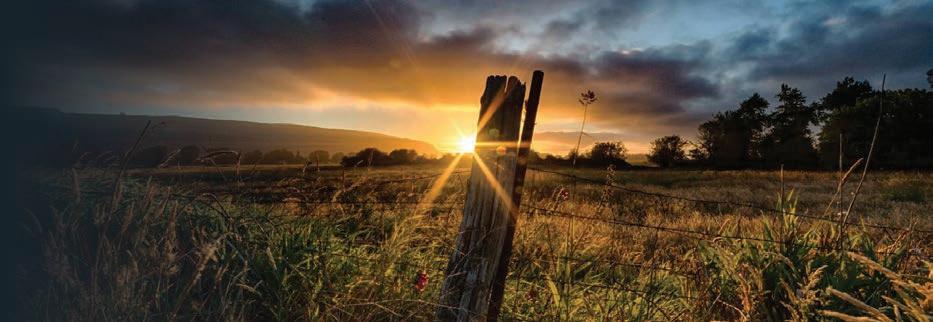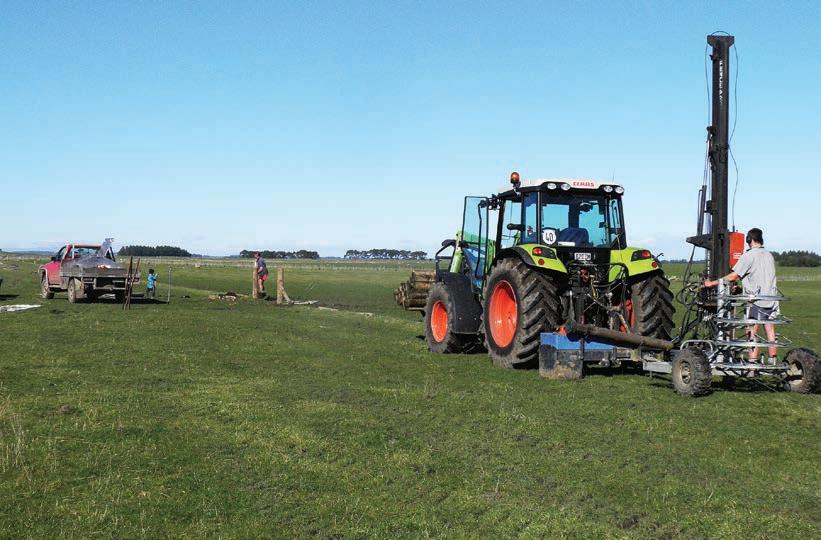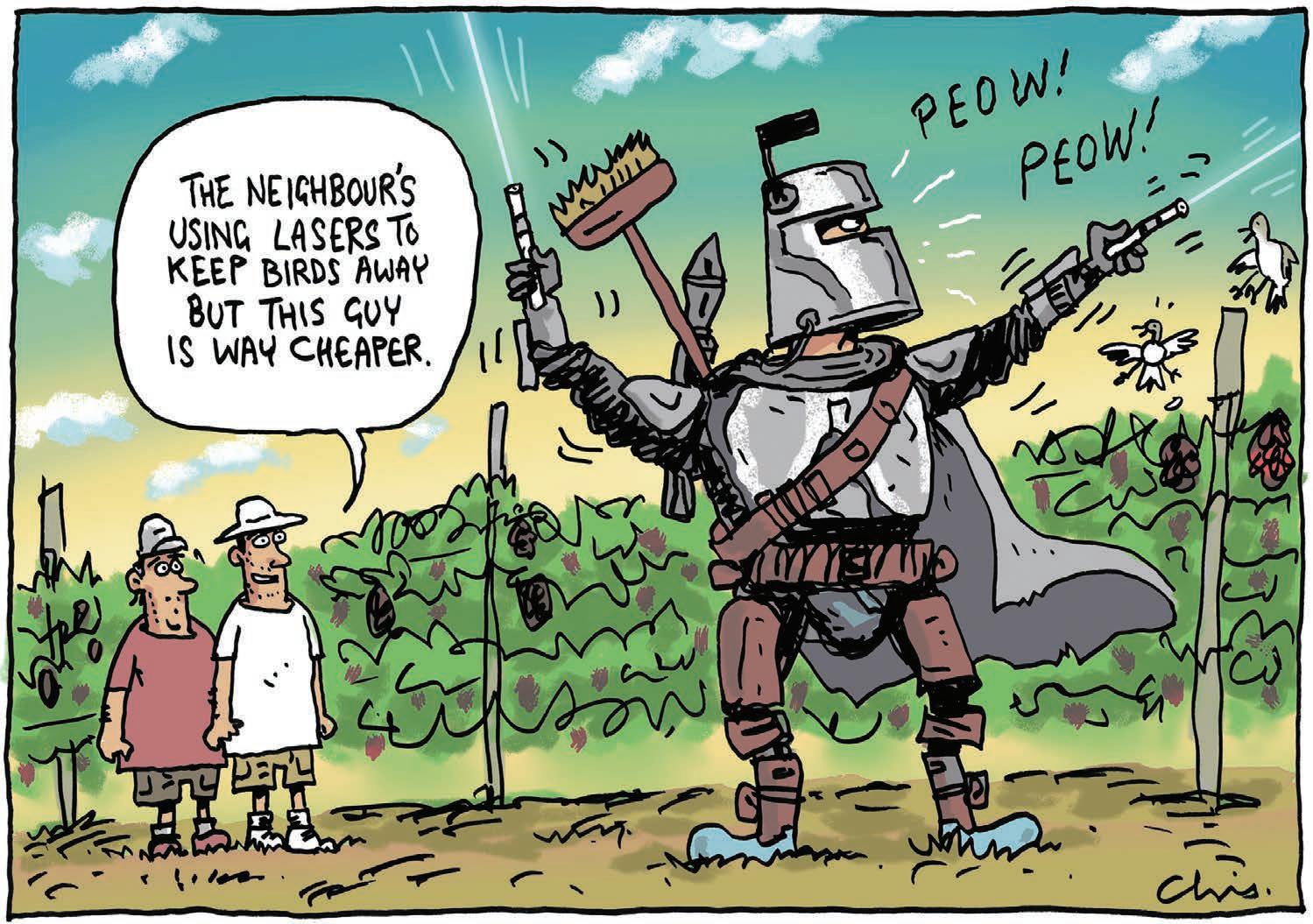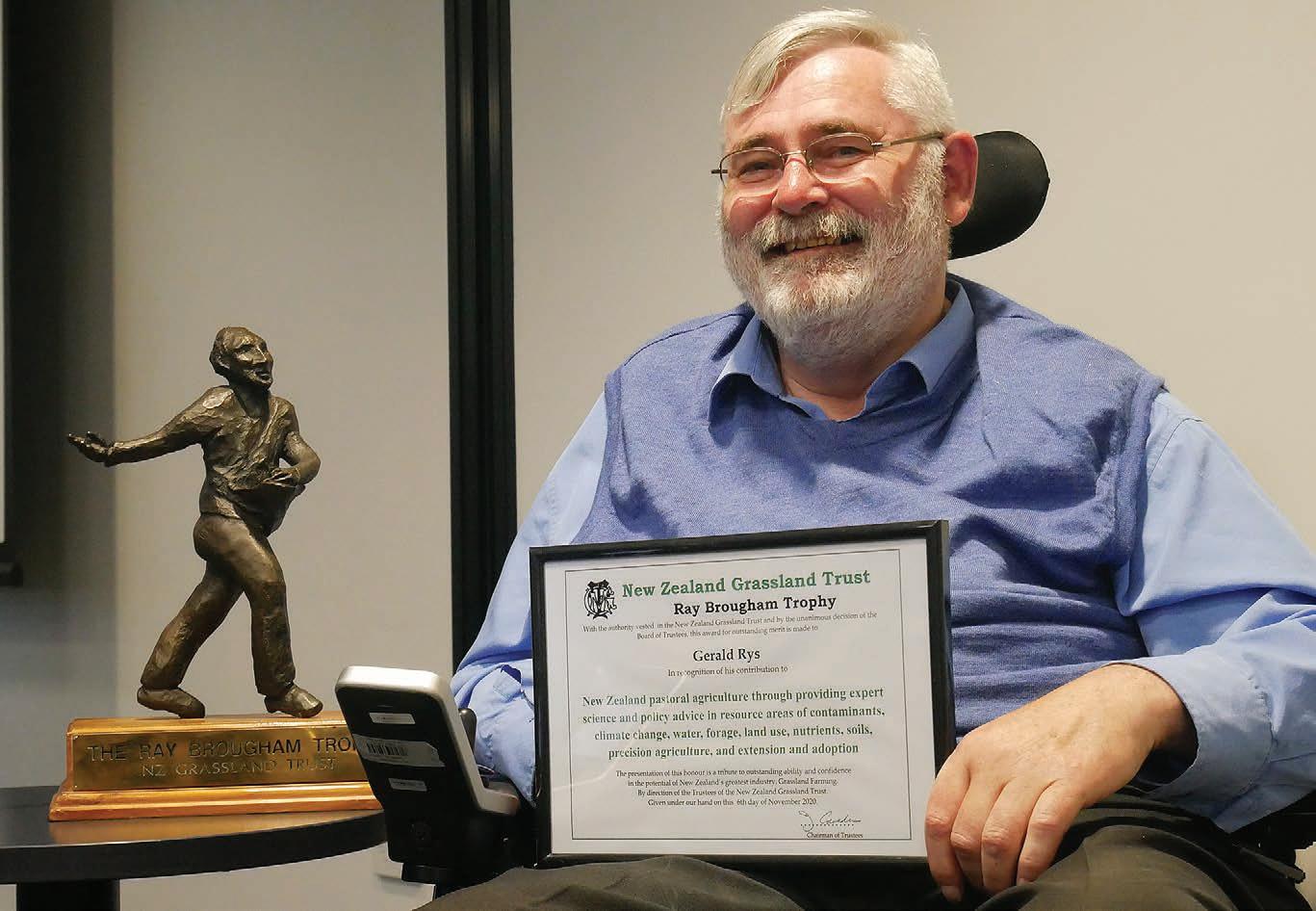
4 minute read
New Thinking
Lasers target pesky birds
Using lasers to deter birds draws on images of deadly ray guns shooting the flying targets down in a smoking pile of feathers. The reality is somewhat less spectacular, but proving equally effective in Otago this summer. Richard Rennie reports.
LIKE most of the primary sector, the viticulture industry has had to grapple with labour shortages and rising costs in the past year, resulting in what Timbo Deaker of consulting firm Viticultura in Otago calls a “forced innovation” period.
“When you look at Central Otago Pinot Noir wine, 62% of the costs per hectare of production lie in labour costs, so there is a lot of effort going in to look at all sorts of ideas to help reduce labour and costs where possible,” Deaker said.
That has been heightened by the lack of overseas workers available for all vital jobs, and the high costs of bringing in fewer Recognised Seasonal Employer (RSE) staff this year from the Pacific Islands.
One of the major timeconsuming tasks on vineyards is protecting vines as grapes ripen from birds, usually for about eight weeks prior to harvest.
While long-lasting, nets can cost tens of thousands of dollars, take a crew of eight about two days to set up and require considerable ongoing maintenance.
“And on a cost basis, 8-10% per hectare of vineyard costs every year are associated with nets. They are a significant category in the budget,” he said.
At present, vineyard operators have a bevy of tools to help reduce bird numbers, including nets, gasfired guns and shooting.
But a chance article in an industry magazine prompted Deaker to consider using special lasers as another weapon of deterrence.
The devices had been employed at airports and grain storage facilities. Some good feedback from overseas prompted him to trial two different systems here.
“We tried two different lasers at two different vineyards, with quite different results; one positive, one negative,” he said.
Deaker persevered with the successful system, which he managed to source from a New Zealand firm Maintrac Group in Westport, and now has installed it in six other vineyards across Otago.
The laser systems have been used in Oamaru to deter the protected Red-billed gull after the repeated mess and damage they caused in the town’s historic central district.
Deaker is not claiming the laser represents some sort of high-tech silver bullet to the bird problem, but it does boost the toolbox of solutions significantly.
“We have found there is no one single solution and you really need to have a combination of things going. The birds do get used to one type of prevention, learn to live with it and ultimately return,” he said.
“We are still big fans of bird nets and will still net outside strips of vineyards.”
The lasers work by covering an orchard or vineyard area from a central point, tilting and panning around an area as required, with the laser light extending 300-400m in daylight. The machines can be powered off the grid using solar units.
“The birds see light differently to humans and they find the intense and shifting light patterns disturbing. It unsettles them and messes with their flight path and ultimately they will leave, particularly if you are combining it with other controls,” he said.
He says of the two big vineyards the lasers were on last year, even the poorer performing site reported a better financial outcome than using nets alone.
Vineyards vary but crop losses due to birds are not bird seed sums, with as much as 10% losses reported in some badly afflicted vineyard sites.
Deaker says vineyards and orchards often have to also wrestle with the reverse sensitivity issues that go with residential housing located close to commercial growing sites.
“The two things that can cause problems are gas-fired guns for bird scaring and frost control. The lasers are silent and quite environmentally-friendly,” he said.
And for those who find the romantic appeal of vineyards dulled by intrusive netting, the lasers may help restore that appeal.
“We have been advising a TV show that did not want the nets in the vineyards, and the lasers have worked there,” he said.
But he says the ultimate bird deterrent may have been witnessed some years ago when Royal Australian Air Force F-18 jets were visiting for Warbirds over Wanaka.
“I think they would have been the most definitive bird scarers we have ever had here,” he said.
ZAPPED: Timbo Deaker, right, of Viticultura and John Ashwell, site manager for Matua Wines NZ.
Timbo Deaker Viticultura
Want to talk? Connect to supports that can help you right now:

1737 Need to Talk? Is a mental health helpline number that provides access to trained counsellors who can offer support to anyone who needs to talk about mental health or addiction issues. It is free to call or text at any time. Youthline www.youthline.co.nz offers support to young people and their families, including online resources about a wide range of issues that affect young people. It can be contacted by calling 0800 376 633, texting 234, email (talk@youthline.co.nz) or online chat. Domestic violence and advice & support, call Women’s Refuge Crisis line 0800 733 843.
Alcohol and drug helpline 0800 787 797.
What’s up www.whatsup.co.nz offers counselling to 5 to 18 year olds by freephone 0800 942 8787 (1pm-10pm Monday - Friday, 3pm-10pm weekends) or online chat. Mental health information and advice for children, teenagers and families is available on its website. The Lowdown www.thelowdown.co.nz is a website and helpline for young people to help them recognise and understand depression or anxiety. It also has a 24/7 helpline that can be contacted by calling freephone 0800 111 757 or





